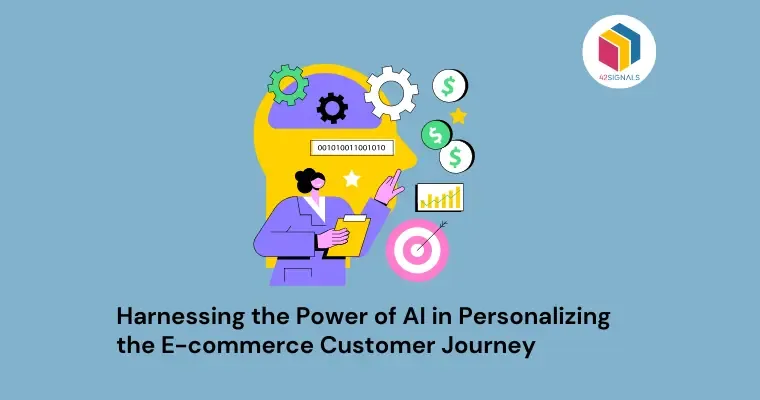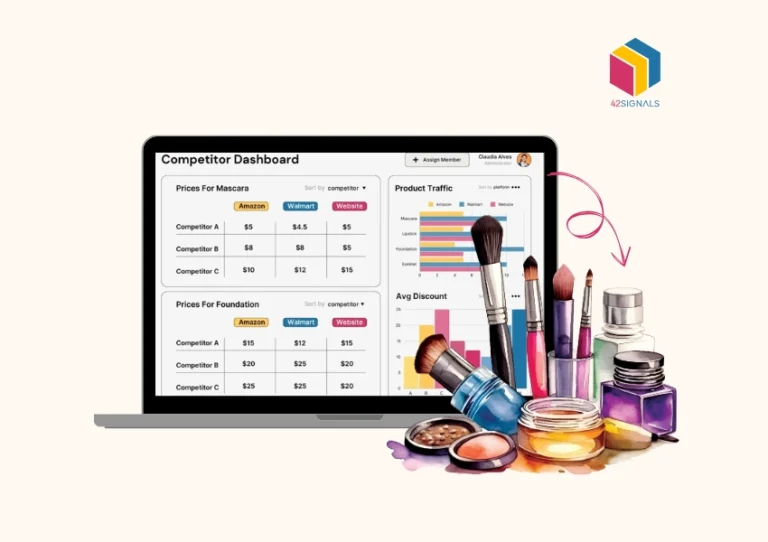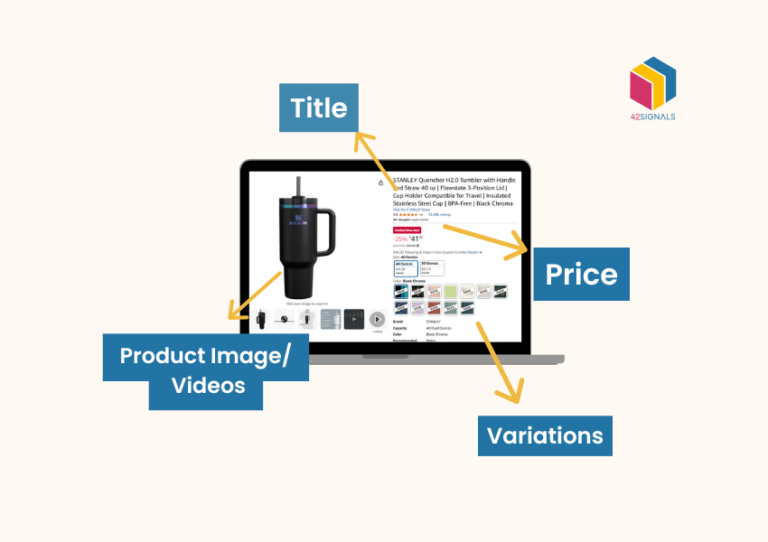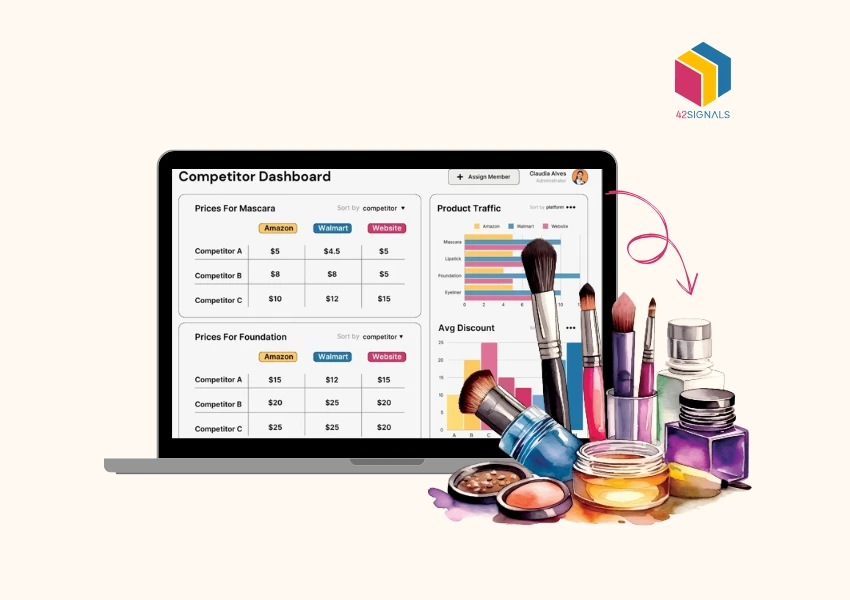Learning About the Power of AI
Imagine walking into a store where every item on display is tailored just for you, transforming your shopping experience from mundane to magical. That’s not just a dream – it’s the new reality of retail. Thanks to advances in artificial intelligence (AI), and the power of AI, shopping has evolved both in-store and online, becoming a finely tuned process that matches products to your tastes and needs with precision. That’s exactly what shopping should be — fast, simple, and personalized.

Source: Eastern Peak
According to Salesforce research, while only 7% of site visits include clicks on product recommendations, these clicks lead to 24% of orders and 26% of revenue.
Personalization doesn’t just streamline shopping, it drives sales. Through personalization, brands now have the power to turn every shopping interaction into a meaningful and rewarding experience.
Personalized shopping experiences are key to customer engagement, retention, and loyalty in today’s retail landscape. Personalization is also linked to higher conversion rates and product sales, as AI creates seamless experiences that leave shoppers satisfied that they’ve made the right purchase, time and time again.
Understanding Customers and Their Needs
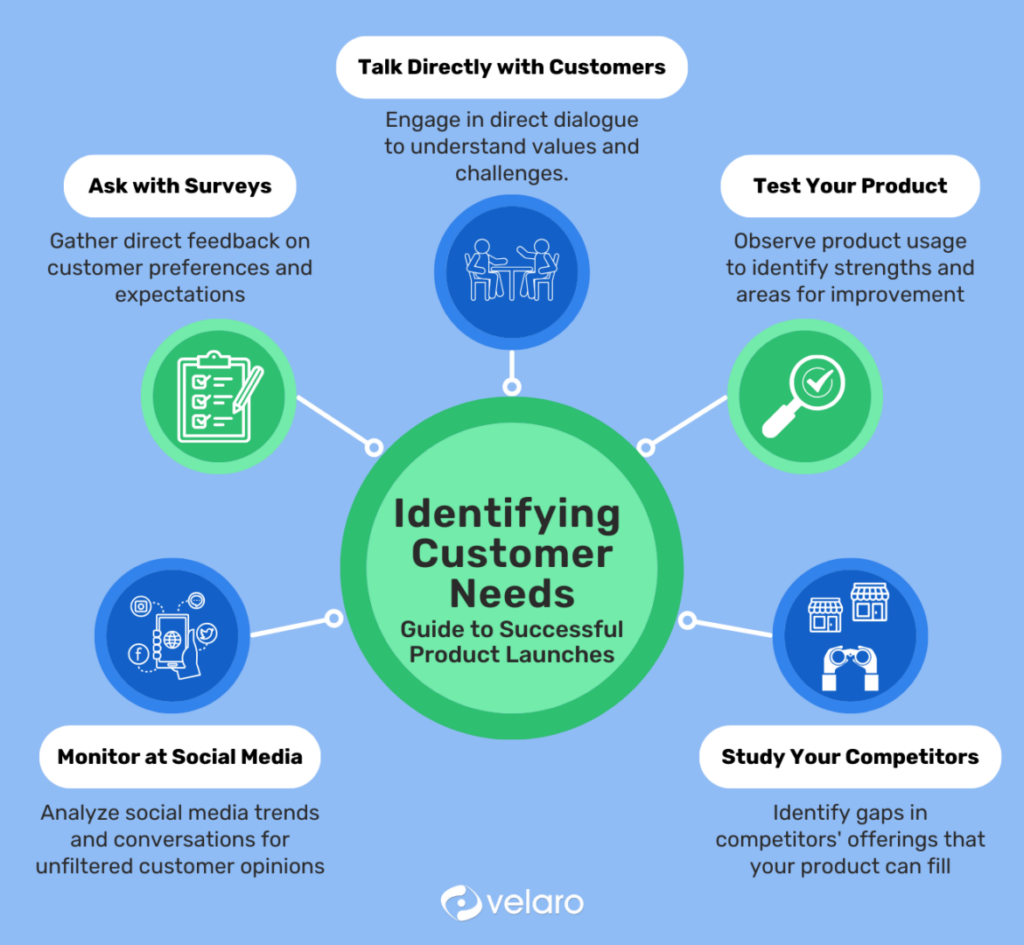
Image Source: Velaro
The reality for many shoppers is a daunting scroll through countless pages in search of the perfect item. However, most give up after just a few clicks.
Thanks to AI-powered product recommendations and enhanced search functionalities, brands can now offer content and search results that immediately align with consumer needs, preventing frustration and site abandonment.
In today’s fast-paced retail environment, 69% of consumers expect to see fresh merchandise on every visit, whether online or in-store.
The power of AI leverages user browsing data to dynamically update product displays, ensuring that customers see new and relevant items during each visit, which is especially effective in encouraging purchases on mobile devices.
As shoppers add items to their carts, Power of AI analyzes these actions to optimize conversion rates through tailored deals, bundles, and ads. This ongoing analysis not only improves sales tactics but also refines marketing strategies over time, creating deeper personal connections with customers.
With 71% of shoppers using their smartphones while in physical stores, AI’s role extends beyond online experiences. Mobile personalization helps customers quickly locate products in-store, and equips sales associates with data-driven recommendations for effective upselling and cross-selling. This integrated approach streamlines shopping both online and off, enhancing the overall customer experience.
Real-World Applications and Benefits
Product Recommendations
Just as the way people shop has changed, so has their expectations. Today’s customers want to receive a personalized experience when shopping online, and when retailers deliver that experience, they’re rewarded with a 40% increase in revenue. The power of AI distils insights from past customer behavior data, such as searches, clicks, and purchases – by feeding it into data-filtering tools, which use algorithms to recommend the most relevant items to a particular customer.

Personalized product recommendations enhance the shopping experience because they help customers find what they want quickly, as well as suggest additional products they may benefit from.
Customer Support with Chatbots
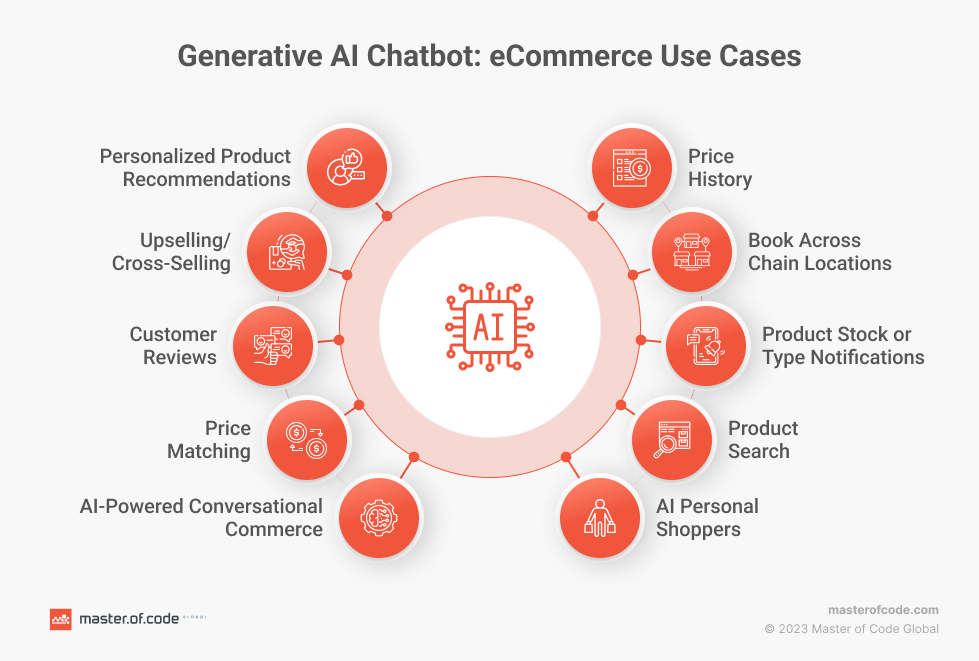
Source: Generative AI Chatbot: eCommerce Use Cases
H&M uses an AI-powered chatbot on its mobile app to provide fashion advice, helping users decide what to buy based on their style preferences and current trends. And, Sephora’s chatbot uses AI to analyze a user’s photo to recommend beauty products and show how they would look when applied.
Dynamic Pricing
The power of AI algorithms analyzes market conditions, customer demand, and competitive pricing in real-time, allowing e-commerce businesses to optimize their pricing strategies dynamically. For shoppers, AI assistants will respond to more complex queries at any time of the day or night, share product recommendations based on retargeting campaigns, and provide real-time updates for accurate package tracking.
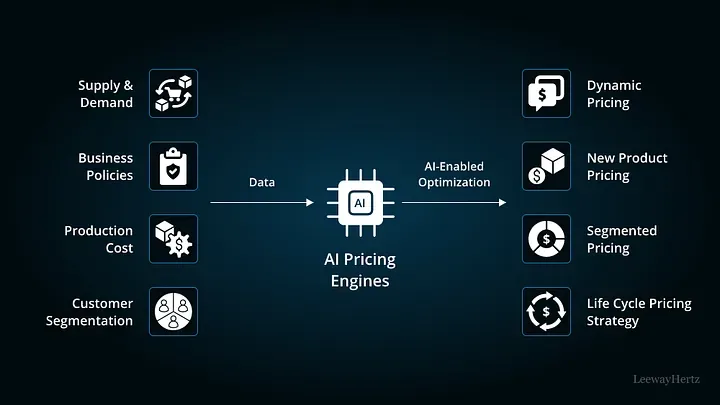
Source: Medium
While not a traditional e-commerce example, Uber’s AI-driven dynamic pricing model adjusts prices in real time based on demand and supply, a principle applicable to e-commerce during sales or promotions.
Predictive Analytics
AI’s ability to analyze vast amounts of data enables more effective segmentation and targeting in marketing campaigns. By understanding customer behaviors and preferences at an individual level, AI-driven campaigns can create highly relevant and compelling content that drives engagement and sales.
For example, by analyzing shopping patterns, Target can predict major life events and tailor its marketing accordingly, famously predicting pregnancies based on shopping habits.
Big Trend To Look Out for in AI Ecommerce
The biggest trend on the horizon? Conversational commerce. Voice-enabled assistants are already an ingrained part of our daily lives – think Apple’s Siri, Google Assistant, Amazon’s Alexa, and Microsoft’s Cortana. The technology behind these AI voice assistants will only advance, and as it does, it’ll create a frictionless voice-enabled shopping experience that’ll affect buyer purchasing behavior.
In 2017, voice-enabled shopping was worth $2 billion. Five years later, the market has grown exponentially to reach $40 billion – and much of that’s attributed to only 10% of consumers who use voice assistants to purchase daily.
In Summary | The Power of AI
As AI technology advances, so too does the potential for creating more personalized, engaging, and efficient shopping experiences. E-commerce businesses that harness the power of AI to understand and anticipate customer needs will not only stay ahead of the curve but also build stronger relationships with their customers.
E-commerce is no longer just about selling products; it’s about creating a personalized journey. For e-commerce insights, get in touch with us at sales@42signals.com
